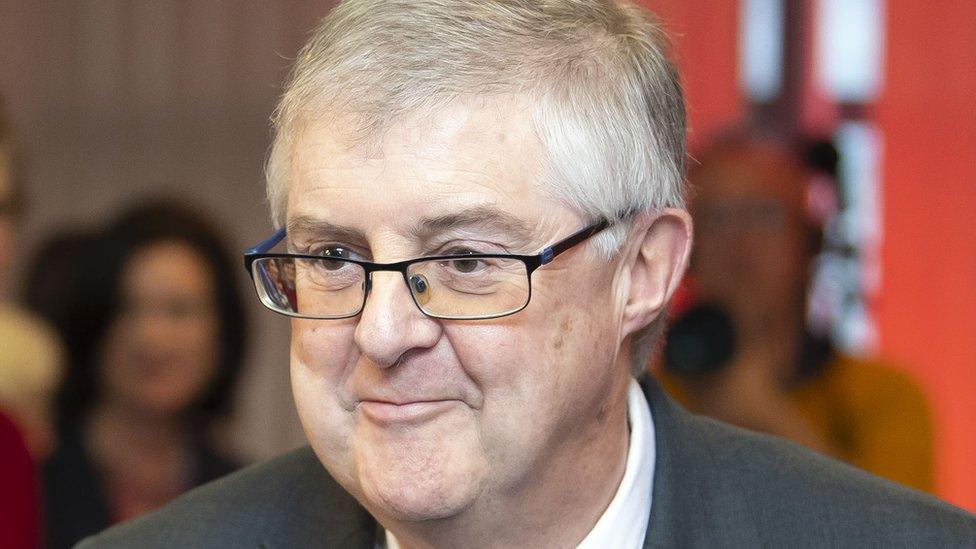Mark Drakeford: From Latin degree to Wales' leader
- Published
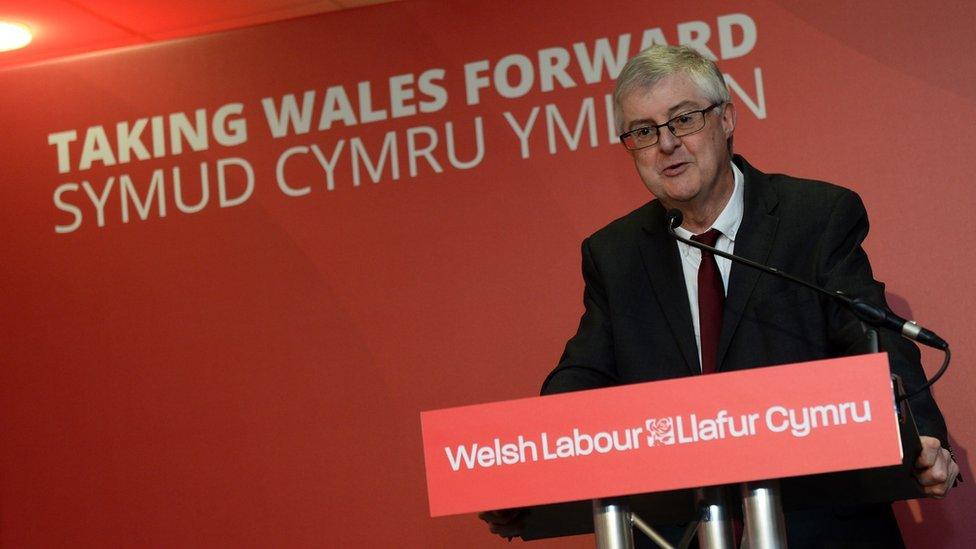
Mark Drakeford's supporters believe he is someone the party can rally around
After years at the heart of government, Mark Drakeford today starts in the top job. BBC Wales' political correspondent Daniel Davies has spoken to friends, colleagues and opponents of the Welsh Labour leader about his politics, personality and the sort of first minister he will be.
Mark Drakeford's political awakening came early.
Nationalist fervour swept his home town of Carmarthen when Gwynfor Evans was elected as Plaid Cymru's first MP in 1966.
At grammar school, Mr Drakeford remembers groups of pupils marching around chanting political slogans.
English-only road signs lay piled on the ground, torn down the night before.
The political climate fired the imagination of the young Drakeford, a clarinet-playing cricket fan. Trashing road signs was, he thought, a "fantastic thing to be doing", he told me.
But the teenager thought class was more important than nationality, so he became a socialist and joined the Labour Party.
In the final year of his Latin degree at the University of Kent in Canterbury, he answered an advert in the Guardian to become a probation officer.
Here's how the Carmarthen by-election result was announced
Arriving for work in Cardiff in 1979, he found the offenders in Ely living in substandard council houses.
But there wasn't much a probation officer could do about that.
So he stood for and was elected to South Glamorgan council in 1985.
Back then, Cardiff's highly factional Labour Party was a "viper's nest", says one of his contemporaries.
In the late 80s, the council was led by Jack Brooks, for years the right-hand man of former Prime Minister Jim Callaghan.
"Jack was very much in control, very much the baron, the person in charge," says Labour AM Julie Morgan, a long-time friend and ally of Mr Drakeford.
Lord Brooks threw his weight behind one of the signal projects of the day - the Cardiff Bay Barrage.
Some were deeply opposed, including Mrs Morgan's late husband Rhodri, the former Cardiff West MP and future first minister.
Mark Drakeford was an opponent too, believing it would cause flooding in his Pontcanna ward.
Together with another future AM - Jane Hutt, then the councillor for Riverside - he was suspended from South Glamorgan council's Labour group for voting against it.
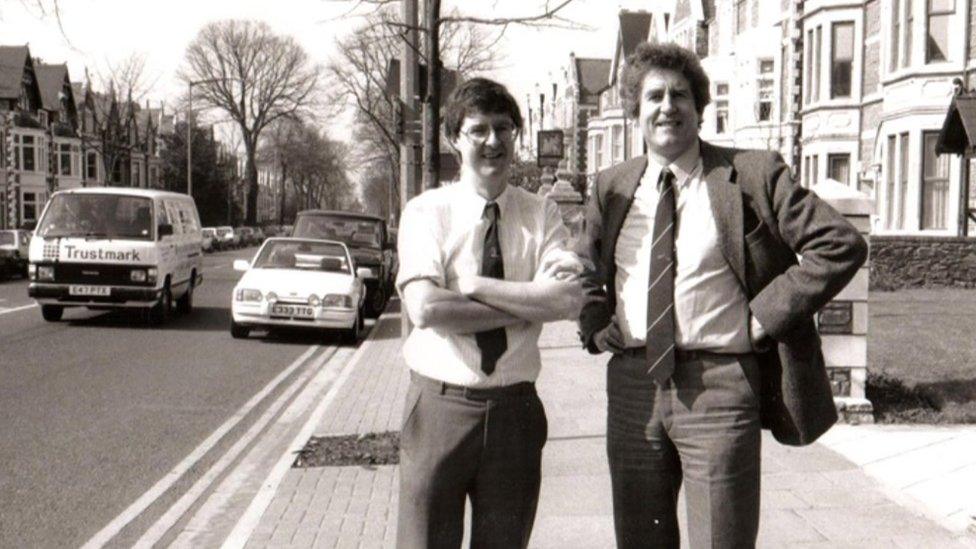
Mark Drakeford has described Rhodri Morgan as his mentor
Instead of civil engineering spectacles, Mr Drakeford preferred the grass-roots approach of setting up charities and community centres.
Mr Drakeford was part of a leftish circle of Cardiff politicians who later joined Rhodri Morgan's "kitchen cabinet" in the Welsh government of the 2000s.
Among them were Ms Hutt, Jane Davidson and Sue Essex. All three become assembly members and ministers.
"These were all political friendships but we had a lot in common as well politically," Ms Hutt says.
"Alliances and friendships go together often."
In 1993 Mr Drakeford stood down from the council.
He went into academia, teaching at Swansea and later at Cardiff University, where he became a professor of social policy.
One of his students was future leader of Plaid Cymru Leanne Wood - like him, a probation officer who became an assembly member (AM).
He got her an extension for her final assignment which was due while she was standing for Plaid Cymru at the 1997 general election.
"He believed I would learn more running a general election campaign about how to help people than on the course for two months," she says.
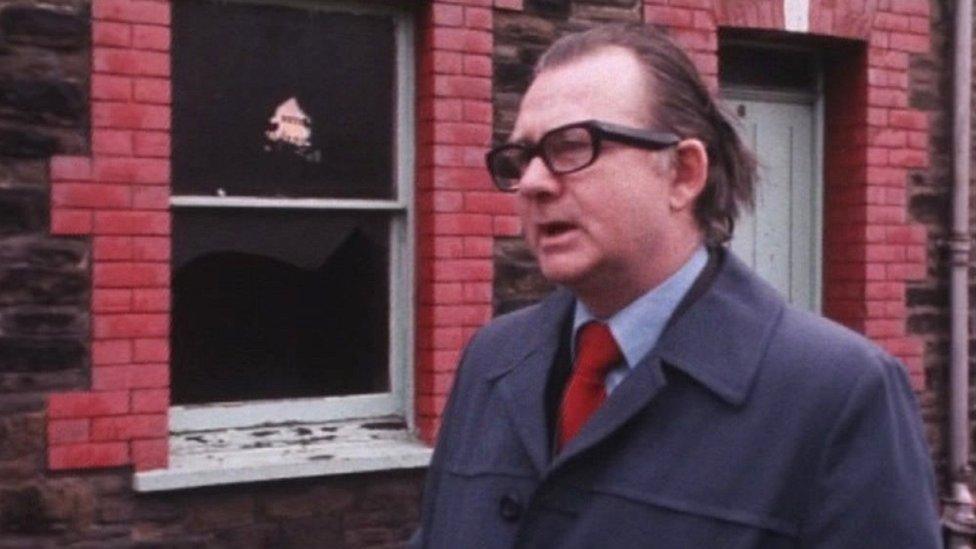
Jack Brooks was a leading backer of the Cardiff Bay redevelopment that transformed the city
His bid to become the AM for Cardiff Central in the first assembly election in 1999 failed.
Nevertheless, he came to wield huge influence over devolution - arguably more influence than most AMs.
When Alun Michael was ousted as first secretary, Mr Drakeford became a special adviser on health and social care under Rhodri Morgan.
They already knew each other well through the Cardiff West constituency. Mr Drakeford had been Mr Morgan's election agent.
Jane Hutt, Mr Morgan's health minister, says it was a "huge bonus" having her old friend there at the start of devolution when things were "really tough".
Soon, he went to work directly for the first minister, trying to stabilise the Welsh Government and give it a purpose.
"We saw him as the main intellectual driving force of the left in Wales," says Darren Williams, a member of Labour's ruling executive from Cardiff.
It was a frantic start for devolution. The institution lurched from one controversy to another.
In the government's Cardiff Bay offices, a former minister says: "There was always this pool of calm where Mark was sitting on the fifth floor amid the chaos."
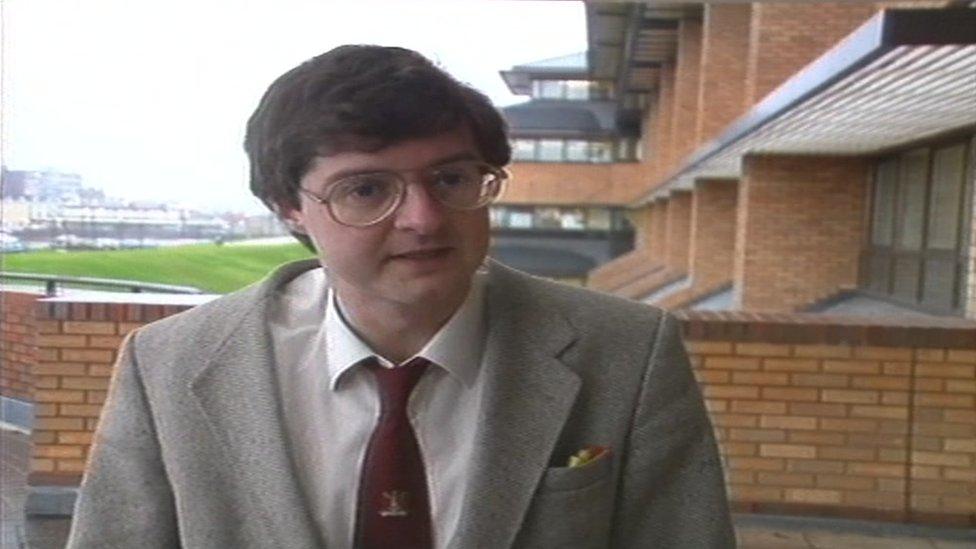
Councillor Drakeford voted against the Cardiff Bay Barrage in 1989
Former Welsh Liberal Democrat leader Lord German, deputy first minister in a Labour-led coalition, calls Mr Drakeford the "Sherpa" who "stood at Rhodri's shoulder".
In his biography, Mr Morgan, describes an encounter between his right-hand man and Tony Blair's entourage: "Mark was dressed down in his normal 1960s polytechnic sociology lecturer super-casual gear, tie-less, sloppy sweater and jeans."
Another official present that day in 2002 remembers Mr Drakeford's mobile phone ringing during a speech by Mr Blair at Cardiff's old library.
Off came the trademark sweater as Drakeford "faffed" to find the phone.
"It was painful," the witness says. "Blair, fair play, carried on. It would have been better if he had made a joke."
When he became a government minister himself, the lecturer's outfit gave way to a suit and tie. Supporters and opponents talk unflatteringly about how he wears it. The habitually undone neck button is now as much a trademark as the "sloppy sweater" once was.
The project to define 'Morganism' culminated in the Clear Red Water speech of 2002 to illustrate the difference between Welsh Labour and New Labour.
Although Mr Morgan departed from the script and never uttered the key sound bite when he delivered the speech in Swansea, it came to define his leadership.
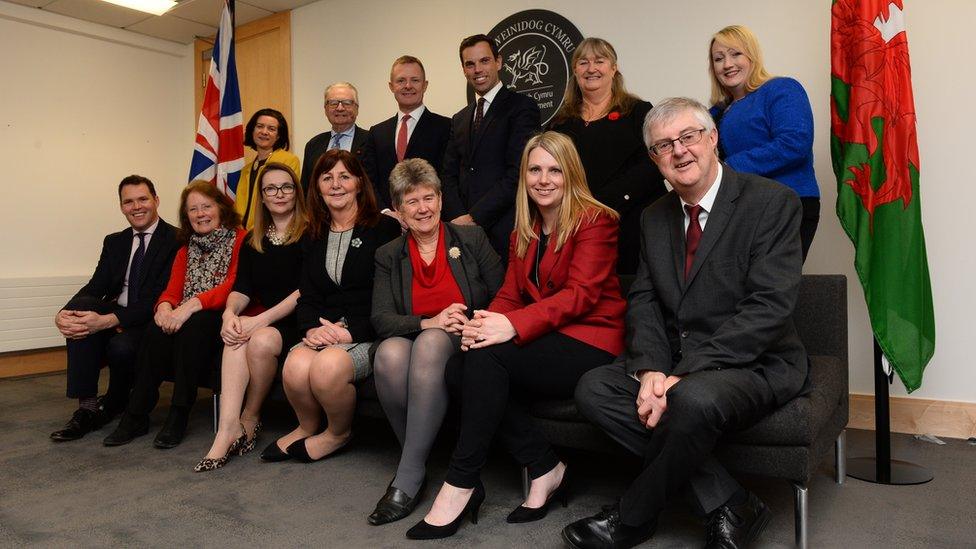
First Minister Mark Drakeford and his team of Welsh Government ministers
Free prescriptions, school breakfasts and bus passes were gimmicks and giveaways to critics. But to the Welsh Government they were part of a vision to make society more equal.
They called it "progressive universalism" - the idea that everyone should enjoy the same access to services - and you can expect more of the same now Mr Drakeford is in charge.
The Morgan-Drakeford partnership continued through to a coalition with Plaid Cymru.
Helping bring the two sides together, there were meetings with Plaid's future leader, Adam Price, at Mr Drakeford's offices in Cardiff University in 2007.
A source who worked in that coalition government says Mr Drakeford "created the narrative".
"Rhodri's first 20 minutes in cabinet was about what he heard in the pub or in Riverside Market. It drove people bonkers.
"Mark could articulate what the strategy was that Rhodri was trying to follow."
Mark Drakeford's acceptance speech after being nominated as first minister by AMs
When Mr Morgan retired in 2011, Mr Drakeford followed in his footsteps as the AM for Cardiff West.
The then First Minister Carwyn Jones left him on the backbenches for two years, before giving him arguably the toughest job in the cabinet - health minister.
His big idea for the service was called prudent healthcare, which involved patients taking more responsibility for their health.
Siobahn McClelland, who held senior positions in the NHS under him, says: "Whether that actually made a difference to anything is actually a moot point."
Mr Drakeford's department was bombarded by criticism about waiting times from the UK government and Conservative-supporting newspapers.
He was determined to ban E-cigs from being used in public places. A former official recalls he "wouldn't budge" on the issue.
The plan faltered when Plaid Cymru withdrew support, partly because another cabinet minister, Leighton Andrews, called the nationalists a "cheap date".
Memories of the episode still annoy Mr Drakeford, but Prof McClelland says: "There are other things we should be doing that are going to make a bigger difference."
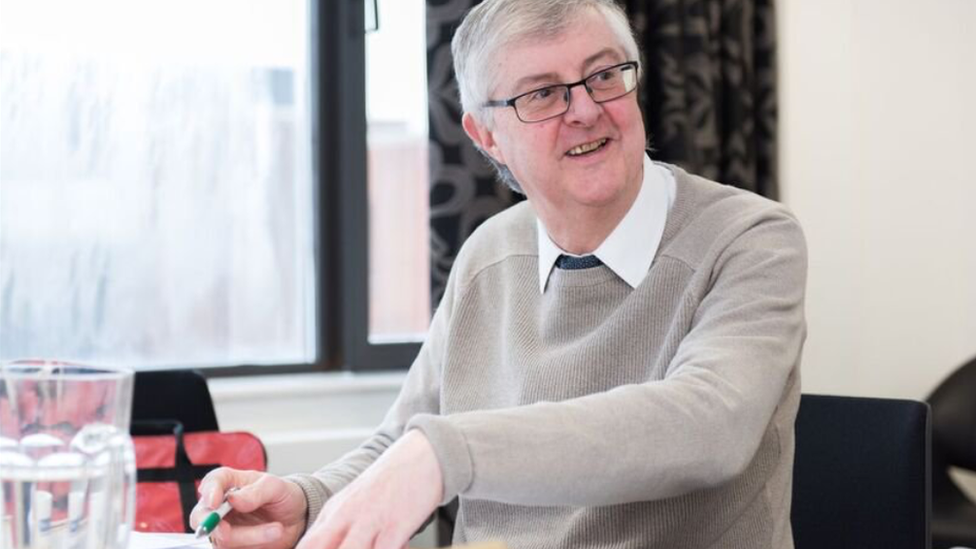
The new first minister in trademark sweater awaiting royal confirmation of his appointment
After the 2016 election, he became finance secretary as the Welsh Government prepared for tax powers and the de-facto Brexit minister.
Detecting a growing appetite to stop Brexit within Labour, his two leadership opponents this year tried to outflank him by demanding a further referendum. But he stuck to the line that his job was to prepare for Brexit, not fight it.
Mr Drakeford says he wrestled with the idea of succeeding Carwyn Jones, not least because of the impact on his family - wife Clare and their three grown-up children.
A friend says he was "conflicted". Was Wales ready for an atheist, republican, socialist first minister?
Gossip intensified in the months after Carl Sargeant died days after being sacked as a minister - and when Mr Jones told Welsh Labour's conference in April that he was going, there was a clamour from his friends for Mr Drakeford to stand.
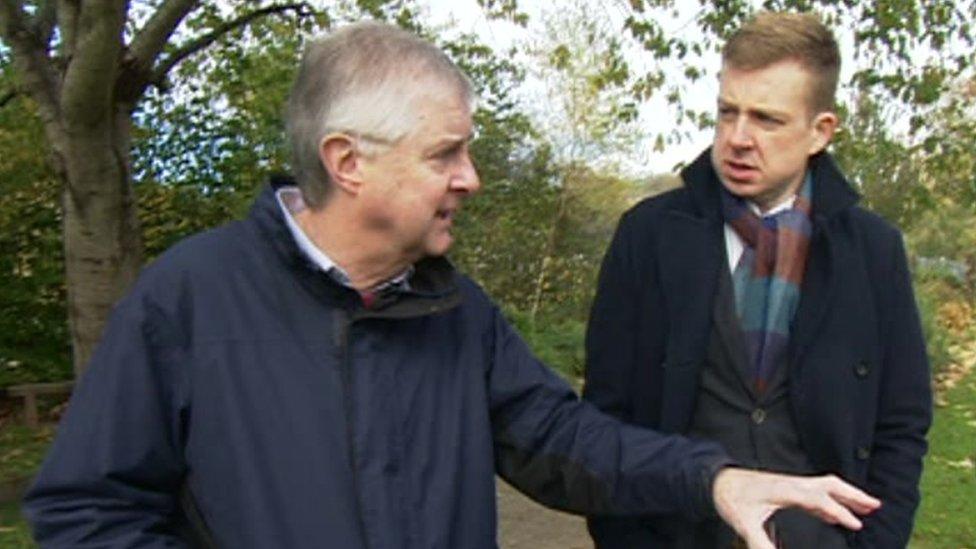
During his leadership campaign Mark Drakeford with BBC reporter Dan Davies
"I think he would be a blessing to Wales," Ms Hutt said at the time.
Whatever his doubts, Mr Drakeford says he became fully committed to the contest.
And after the emotional toll of Carl Sargeant's death, Mr Drakeford's supporters think he is someone they can rally around.
He is the right man for this time "because of what happened with Carl", says Julie Morgan.
Admirers and former colleagues talk about how clever he is and how his experiences as a probation officer taught him how hard life can be.
Will he thrive as leader?
Leanne Wood, who followed the same career path, from the probation service to leading a party, says: "He's got the right value base, I would say, but you need discipline and doing the job is a lot harder than it looks.
"What you see is only a fraction of what goes on. So much is behind the scenes."
Mr Drakeford is used to working behind the scenes. Now we'll see whether he thrives in the limelight.
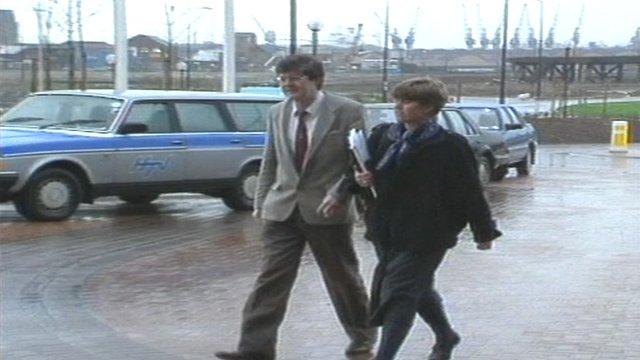
Councillors Mark Drakeford and Jane Hutt in the 1980s
- Published20 December 2018
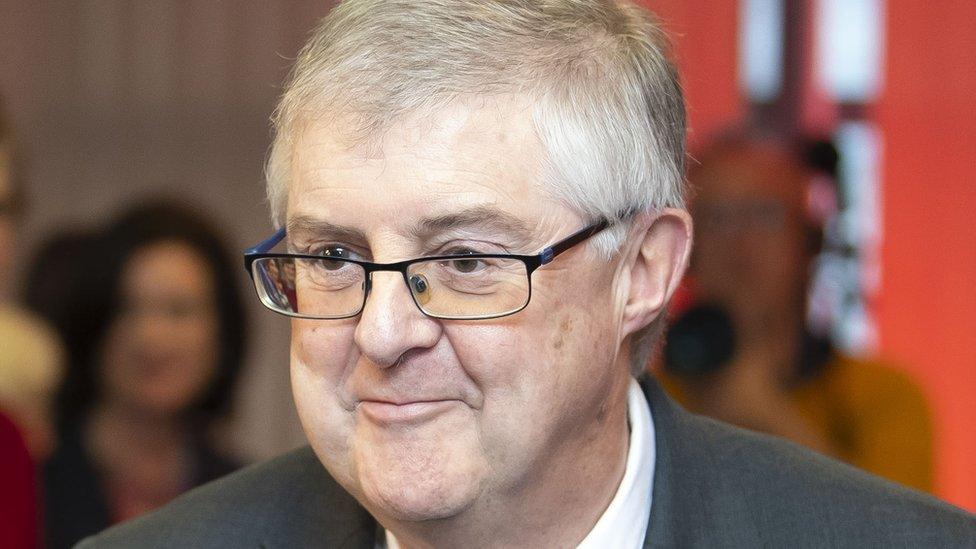
- Published13 December 2018

- Published12 December 2018
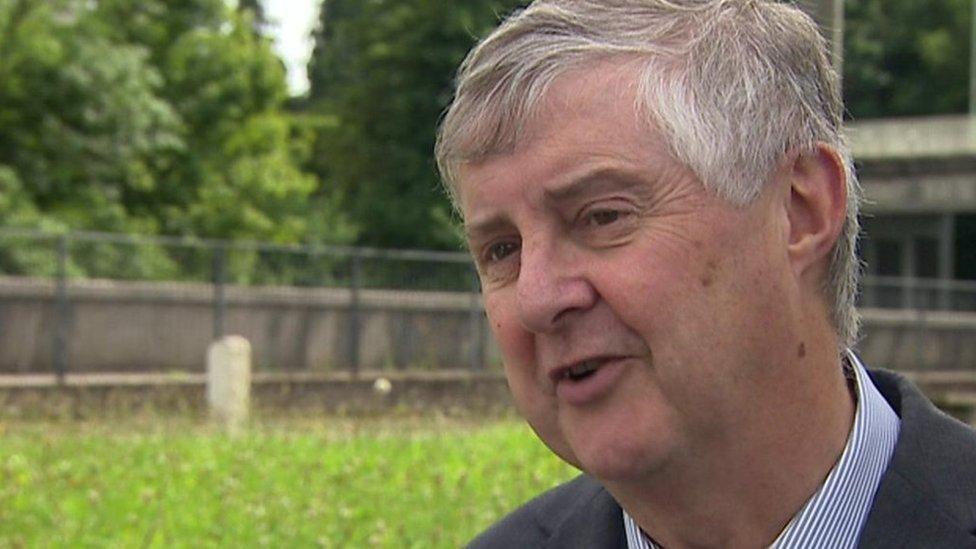
- Published7 December 2018
